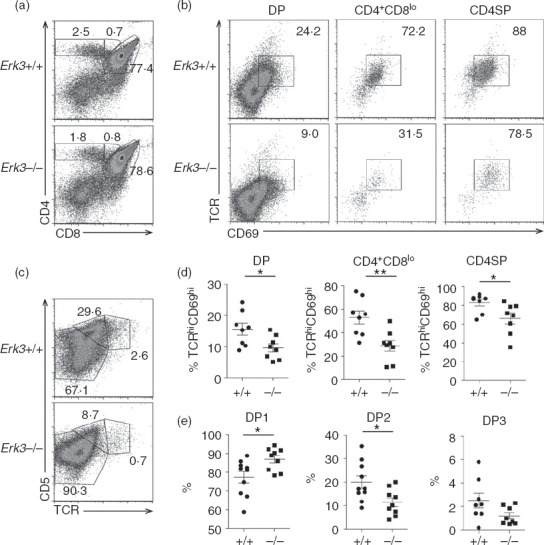Figure 2.

Defective positive selection of extracellular signal-regulated kinase 3 (ERK3) -deficient polyclonal thymocytes. (a) Representative CD4/CD8 thymic profile of Erk3+/+ and Erk3−/− E18.5 thymi. The percentage of cells within the different thymic subsets is indicated on the FACS dot plots. (b) T-cell receptor (TCR) and CD69 expression is shown for double-positive (DP), CD4+ CD8lo and CD4 single-positive (SP) Erk3+/+ and Erk3−/− thymocytes from E18.5 embryos. The percentage of TCR+ CD69+ cells is indicated on the FACS profile. (c) TCR and CD5 expression on DP thymocytes is shown for Erk3+/+ and Erk3−/− mice. The percentage of DP1 (TCRlo CD5lo), DP2 (TCRint CD5hi) and DP3 (TCRhi CD5int) thymocytes is indicated on the FACS dot plot. (d) Compilation of the frequency of Erk3+/+ and Erk3−/− TCRhi CD69+ thymocytes within the different thymocyte subsets. (e) Compilation of the frequency of DP1, DP2 and DP3 thymocytes in Erk3+/+ and Erk3−/− thymi. The line represents the mean and the error bars are the standard error of the mean (SEM). Each dot represents one individual mouse. The statistical significance was determined with a Mann–Whitney U-test (*P < 0·05; **P < 0·01). The results of three independent experiments are shown.
